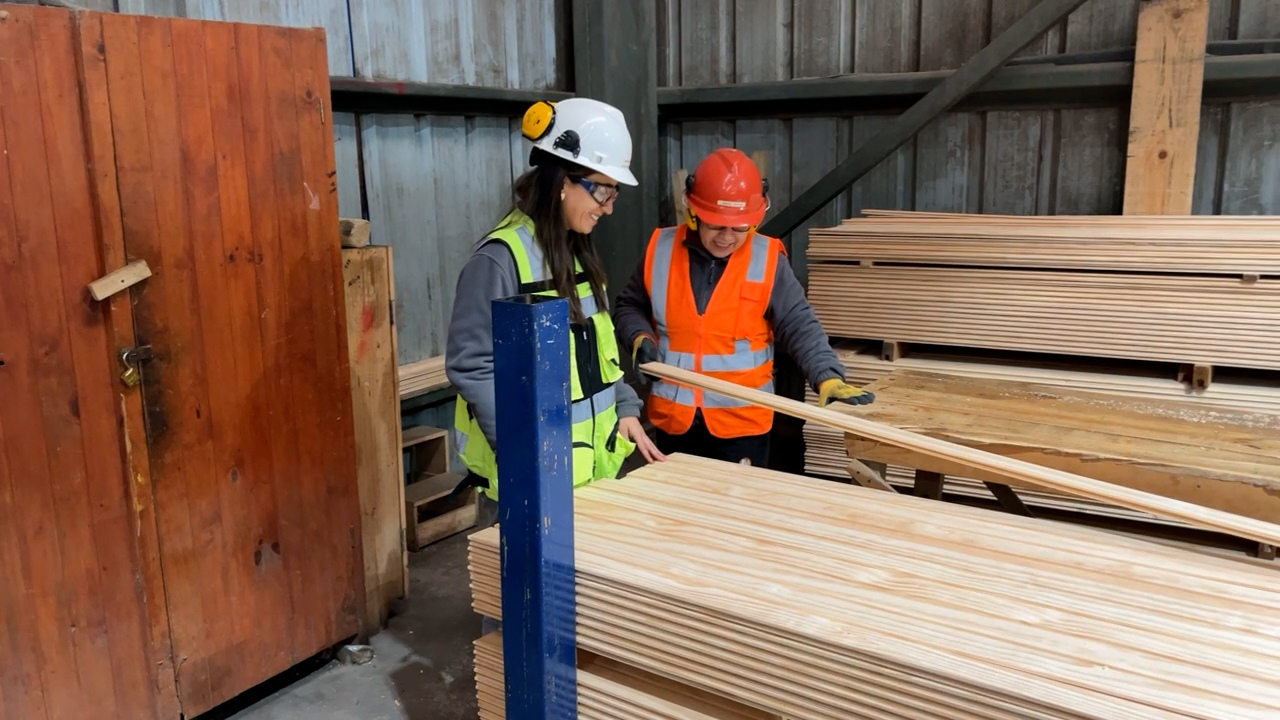- The company led by Lorena Vargas has established itself as a benchmark in sustainability and productive diversification, integrating a service-oriented approach and actively promoting female participation in the timber industry.
Guivar Transforma, located in Trehuaco and Coelemu, Ñuble region, represents an exemplary case of how small and medium-sized forestry enterprises can lead significant changes in the industry. Under the direction of Lorena Vargas, a commercial engineer and current vice president of PyMeMad Biobío-Ñuble, the company has revolutionized its production processes while building a more inclusive and sustainable business model.
The transformation began in 2010, when an innovation project radically improved wood drying and certification processes, enabling the diversification of the product portfolio and increasing production capacity. This technological modernization not only optimized the quality of the final product but also strengthened traceability from the forest to the customer, a differentiating value in today's market.
"We transform wood by highlighting its renewable and sustainable nature, adding value at every stage of the process," explains Vargas, who assumed the role of deputy manager in 2019 and general manager at the end of 2021, leading the company through the challenges of the pandemic and after the passing of her founding father in 2022.
Among the most relevant advances is the progressive incorporation of women in operational areas, reaching 17% female participation, with the goal of reaching 30% by 2030. This equity policy extends to all levels of decision-making, challenging stereotypes in a historically male-dominated industry. In parallel, the company has implemented various initiatives aimed at strengthening good service, tailored to both the real needs of workers and the demands of today's market, thus contributing to a more efficient, collaborative, and people-centered organizational culture.
Guivar Transforma demonstrates that forestry SMEs can be key drivers of local development, generating quality employment, promoting sustainable practices, and contributing to the economic growth of rural communities. A concrete example of how innovation and tradition can coexist and mutually reinforce each other in the Chilean forestry industry.
